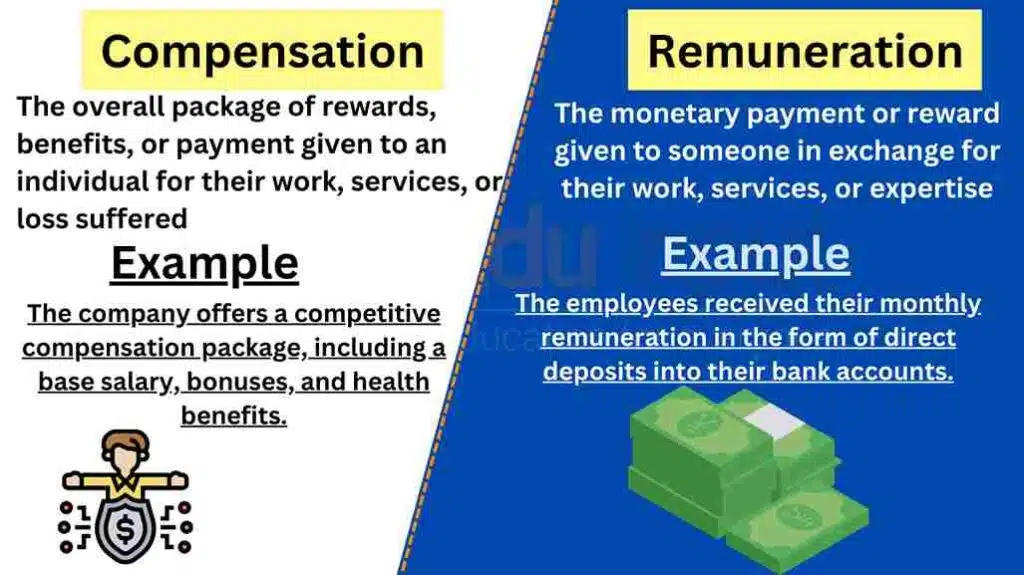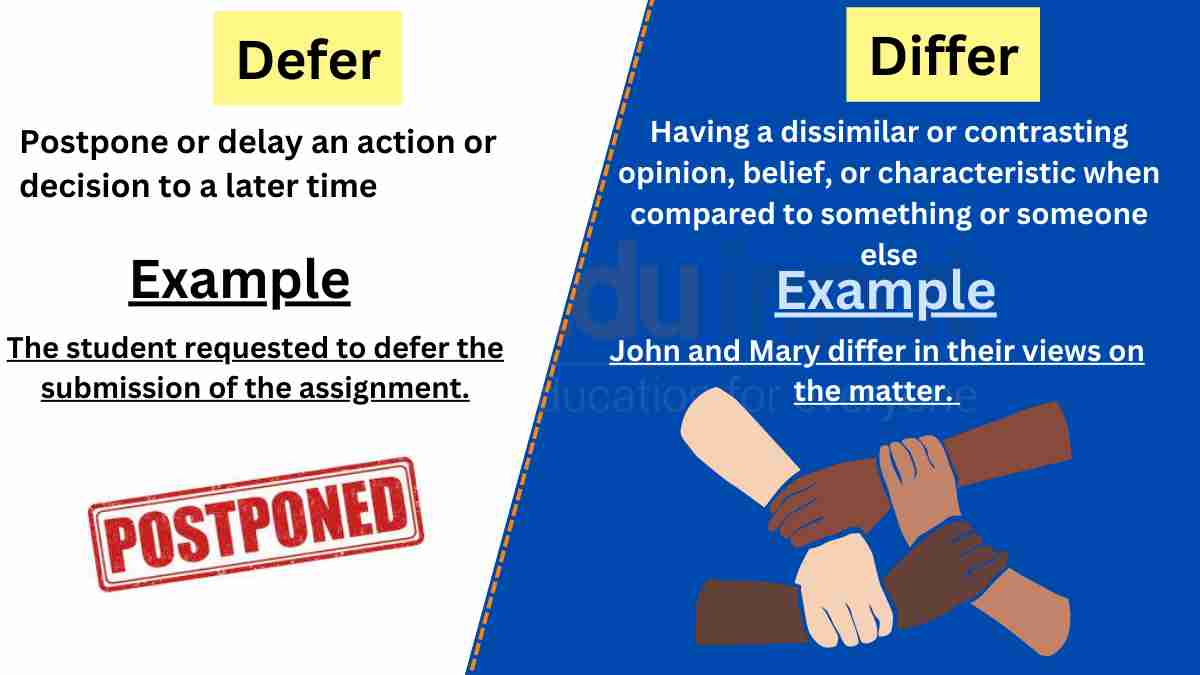Compensation vs Remuneration-Difference Between and Examples
In the realm of employment and financial matters, two terms often come into play: “compensation” and “remuneration.” While both words are related to financial rewards, they carry distinct meanings and usage.
In this article, we will explore the differences between “compensation” and “remuneration” to gain a better understanding of their nuances and how they are employed in various contexts. By clarifying that “compensation” refers to a broader concept of rewards or benefits, including non-monetary elements, while “remuneration” specifically pertains to monetary payments for services rendered, we can use these terms accurately and avoid confusion. Let’s delve into the contrasts between “compensation” and “remuneration.”

Meanings and Examples
Compensation Meaning
Noun: The meaning of Compensation refers to the overall package of rewards, benefits, or payment given to an individual for their work, services, or loss suffered.
Compensation Examples
- The company offers a competitive compensation package, including a base salary, bonuses, and health benefits.
- The victims of the accident were entitled to receive compensation for their injuries and damages.
- The executive’s compensation package includes stock options and performance-based incentives.
- The athlete signed a contract that guarantees substantial compensation for endorsement deals.
- The company provided compensation in the form of additional vacation days to make up for the long working hours.
Remuneration Meaning
Noun: The meaning of Remuneration specifically refers to the monetary payment or reward given to someone in exchange for their work, services, or expertise.
Remuneration Examples
- The employees received their monthly remuneration in the form of direct deposits into their bank accounts.
- The consultant negotiated a higher remuneration for taking on additional responsibilities.
- The freelancer charges an hourly rate as remuneration for their professional services.
- The contract outlines the remuneration structure, including a fixed salary and performance-based bonuses.
- The artists were offered fair remuneration for their contributions to the project.
Differences Between Compensation and Remuneration
| Criteria | Compensation | Remuneration |
| Meaning | Overall package of rewards, benefits, or payment | Monetary payment or reward |
| Part of Speech | Noun | Noun |
| Pronunciation | kɒmpənˈseɪʃ(ə)n | rɪˌmjuːnəˈreɪʃ(ə)n |
| Usage | Broad concept including monetary and non-monetary elements | Specifically monetary payment |
Usage in a Paragraph
The company prided itself on providing generous compensation to its employees, recognizing that a comprehensive package contributes to job satisfaction and loyalty. The compensation package encompassed various elements, such as a competitive salary, health insurance coverage, retirement benefits, and professional development opportunities. However, it was the remuneration component that particularly caught the attention of potential candidates. The company offered attractive remuneration, providing competitive salaries that aligned with industry standards and ensured fair payment for the skills and expertise of its employees.
Understanding the distinction between “compensation” and “remuneration” allows us to utilize these terms correctly, conveying our intended meaning in matters of financial rewards. “Compensation” refers to the overall package of rewards, benefits, or payment, including both monetary and non-monetary elements, while “remuneration” specifically pertains to monetary payment or reward for services rendered. By using these terms accurately, we can navigate discussions about employment, financial agreements, and fair compensation with clarity and precision.







Leave a Reply